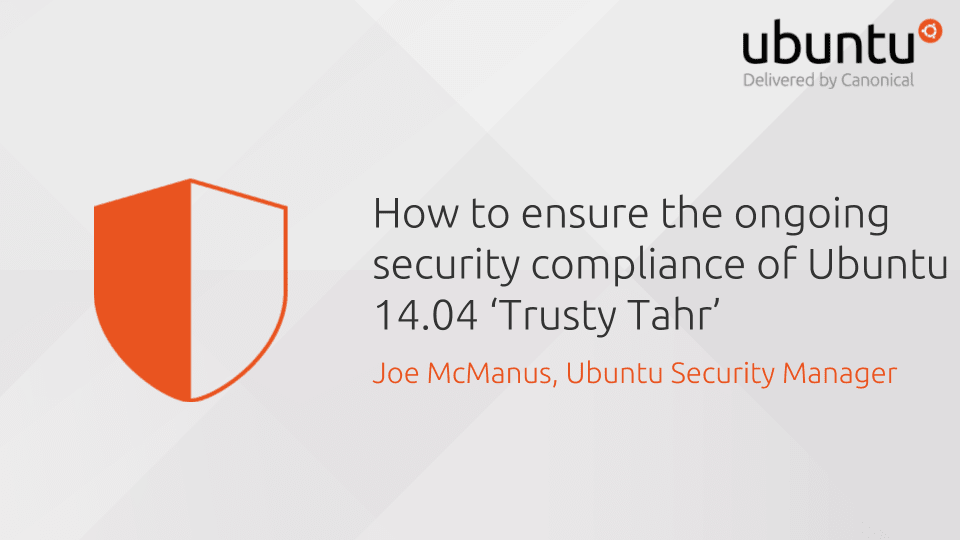How to ensure the ongoing security and compliance of Ubuntu 14.04 LTS ‘Trusty Tahr’
Canonical
on 7 March 2019
Tags: 14.04 , Compliance , ESM , Extended Security Maintenance , Security , Trusty Tahr , webinar

Ubuntu 14.04 LTS the ‘Trusty Tahr’ is a reliable and intuitive release, adopted by many enterprises for cloud infrastructure when released in April 2014. However, as 14.04 reaches the end of its five-year, Standard Security Maintenance, LTS window in April 2019, support for the OS is transitioning into a new phase – Extended Security Maintenance (ESM).
With this transition to ESM, Ubuntu OS users and organisations are encouraged to upgrade to a later release in order to gain access to the latest and greatest features of Ubuntu. Since the release of Ubuntu 14.04, there have been two subsequent Ubuntu LTS releases: Ubuntu 16.04 ‘Xenial Xerus’ and Ubuntu 18.04 LTS ‘Bionic Beaver’.
Initially launched with the transition of Ubuntu 12.04 LTS, ESM brings critical security patches beyond the LTS date of Ubuntu releases. The offering allows organisations to safely and securely plan application upgrades in a failsafe environment, a factor that is often cited as the main value for its adoption. And for those who cannot upgrade at this stage due to complications and cost, ESM protects this release from potential vulnerabilities until an organisation can upgrade.
The availability of ESM for Ubuntu 14.04 means that the transition of Ubuntu 14.04 LTS Trusty Tahr to ESM in April should not negatively impact an organisation’s security and compliance efforts.
On Tuesday, 12 March, Ubuntu Security Manager, Joe McManus will cover everything you need to know about this new support phase in our 14.04-focused webinar, sharing how to achieve secure and compliants systems with ESM.
In this webinar you will learn:
- What the transition to Extended Security Maintenance for Ubuntu 14.04 LTS means
- Guidance on updating 14.04 LTS systems to 16.04 LTS or 18.04 LTS
- Q&A with Ubuntu Security Manager, Joe McManus
Talk to us today
Interested in running Ubuntu in your organisation?
Newsletter signup
Related posts
6 facts for CentOS users who are holding on
Considering migrating to Ubuntu from other Linux platforms, such as CentOS? Find six useful facts to get started!
How Canonical enables PCI-DSS compliance
Anyone who deals with online payments will have heard of PCI-DSS. The Payment Card Industry Data Security Standard is a comprehensive security control...
Ubuntu 20.04 LTS End Of Life – activate ESM to keep your fleet of devices secure and operational
Focal Fossa will reach the End of Standard Support in May 2025, also known as End Of Life (EOL). Ubuntu 20.04 LTS has become a critical component for millions...
